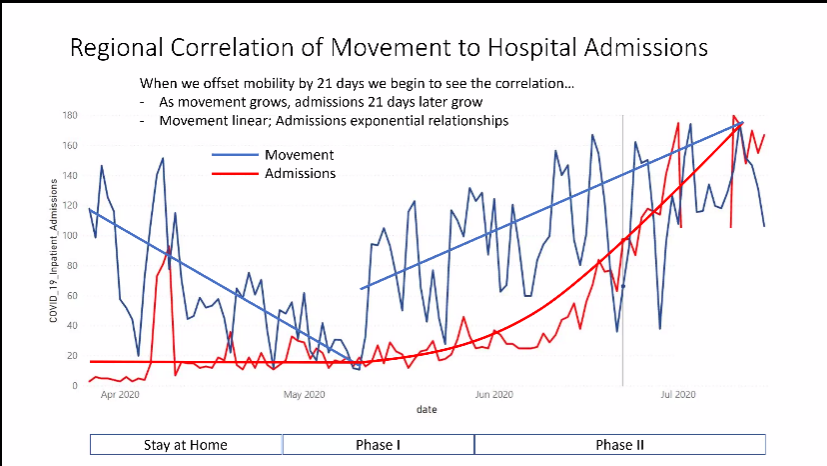TAMPA, Fla. (WFLA) – Data scientists from the University of South Florida have developed a new model to predict the spread of COVID-19 throughout Tampa Bay using mobile data.
Using anonymous GPS data from 3.5 million mobile devices in Tampa Bay, along with admissions data from more than 50 local hospitals, researchers found that there is a direct correlation between mobilization and daily hospital admissions related to the coronavirus.
“When we see a spike in movement, 21 days later we see an increase in COVID-19-related hospitalizations in the Tampa Bay region,” said Dr. Matthew Mullarkey, Ph.D., the director of the Doctor of Business Administration Program for the USF Muma College of Business.

By the first week of June, mobile device movement had increased by 80%. Movement to densely-populated locations – or those with more than 10 people regularly in close quarters, such as a grocery store – had increased by 140%.
People between the ages of 20 to 55 represented almost 100% of the increase in densely-populated locations.
Three weeks later, after the first phase of reopening, daily hospital admissions doubled from 20 to 40 across the region.
Within three weeks of the Phase Two Reopening, hospital admissions grew to 80 per day. They are now reaching numbers in excess of 100 per day across the region.
Data shows that the total movement of mobile devices grew by 150% over the mobility observed during the stay-at-home order. The average number of dense locations visited daily grew by 220% across the region.
On a positive note, since local mask mandates went into effect, analysts saw a 24% decrease in unique locations.
“The outcomes are up to us, depending on how aggressively we address behaviors,” Mullarkey said. “If enough of us take seriously our ability to limit our level of exposure, we will reduce the rate of spread of this virus dramatically in our region.”











